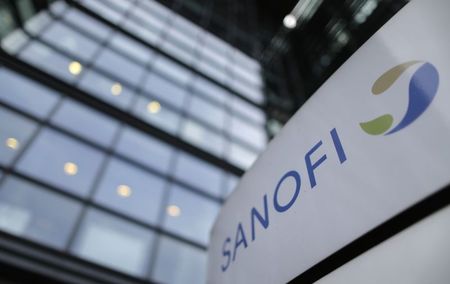By Natalie Huet
PARIS (Reuters) - Sanofi, which sacked its chief executive three weeks ago, hopes to launch up to 18 new drugs by the end of 2020, with the potential to reap more than 30 billion euros (24.29 billion pounds) within the first five years of sales.
Sanofi executives will lay out their strategy for bringing several new drugs to the market later on Thursday, in a bid to win over investors alarmed by the sudden ouster of its chief executive and problems in the field of diabetes.
The French drugmaker said it expects to launch up to six new medicines in 2015 alone, and about one every six months between 2016 and 2018.
Thursday's long-planned investor event will focus on drugs set to launch in the coming years, including the world's first vaccine against dengue fever, its injectable cholesterol-lowering drug alirocumab and the allergy treatment dupilumab.
Investors have voiced worries about Sanofi's management and financial prospects since the drugmaker warned last month that sales of its popular Lantus insulin were slowing more sharply than expected. The board subsequently sacked CEO Chris Viehbacher over his solitary management style.
Chairman Serge Weinberg, who has taken the helm while Sanofi looks for a new boss, is set to give introductory remarks but has already said there would be no more detailed guidance on the company's financial prospects until annual results in February.
Sanofi, however, said it expected its global diabetes drug sales to post little or no growth between 2015 and 2018.
Sanofi's forecast assumes "a substantial conversion" of patients from Lantus to an improved version of the drug, Toujeo, continued sales growth in emerging markets and U.S. launches of new diabetes drugs including inhaled insulin Afrezza.
Diabetes drugs, a market expanding worldwide as obesity increases, has long been Sanofi's cash cow but the drugmaker's pricing power is set to shrink as so-called biosimilar copies enter the market over the next two years.
Sanofi said the launch of new medicines and vaccines in other fields would help mitigate its dependence on Lantus, which accounts for nearly a fifth of sales.

In a separate statement, Sanofi and its U.S. partner Regeneron welcomed the U.S. Food and Drug Administration's decision to grant a fast-track development and review process to their dupilumab drug in the treatment of atopic dermatitis, a chronic form of eczema.
(Editing by David Clarke)